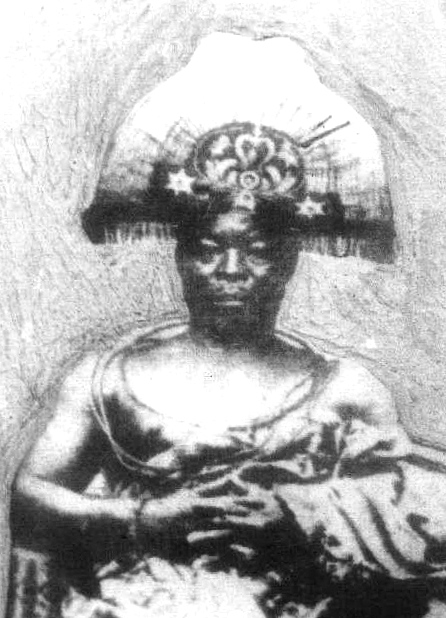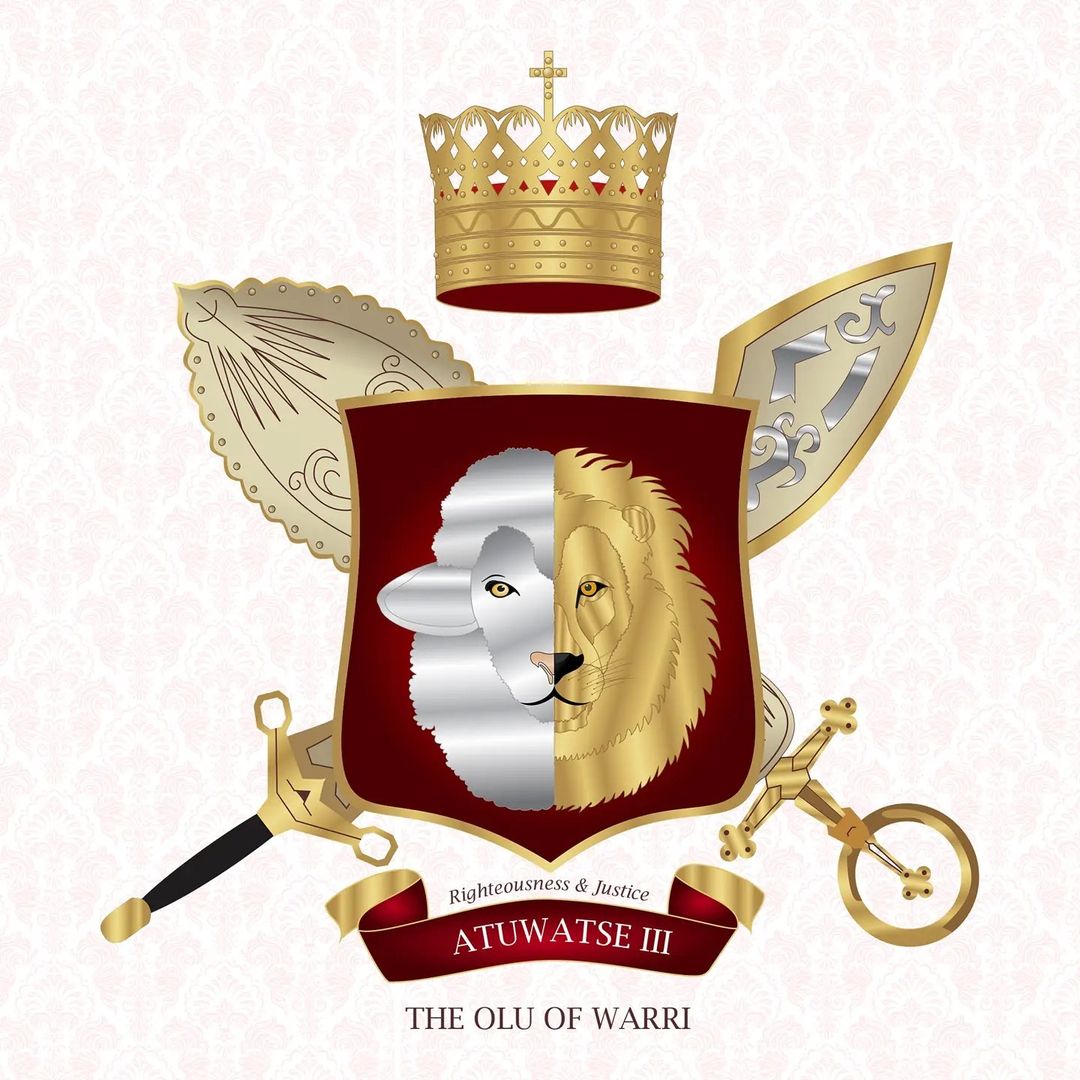|
Olu Esigie
Olu Esigie was an Itsekiri traditional ruler. He succeeded his father Ogiame, Olu Ojoluwa after his demise. He was crowned Ogiame Esigie, the 5th Olu of Warri Kingdom at Ode-Itsekiri, the ancestral home of the Itsekiri. He ascended the throne of his father in 1570 and reigned until 1597, when he passed on. He was succeeded by his son, Olu Atorongboye (Olu Sebastian) Olu Atorongboye (Olu Sebastian) was the sixth Olu of Warri who ruled over the Itsekiri and non Itsekiri people in the kingdom. He was the son to Olu Esigie and succeeded his father Olu Esigie as the 6th Olu of Warri. He was born Prince Eyomasan .... References People from Warri 1597 deaths 16th-century monarchs in Africa Olus of Warri {{Nigeria-bio-stub ... [...More Info...] [...Related Items...] OR: [Wikipedia] [Google] [Baidu] |
Oba Of Benin
The Oba of Benin is the traditional ruler and the custodian of the culture of the Edo people and all Edoid people. The then Kingdom of Benin (not to be confused with the modern-day and unrelated Republic of Benin, which was then known as Dahomey) has been and continues to be mostly populated by the Edo (also known as Benin ethnic group). In 1897, a British military force, of approximately 1,200 men, under the command of Sir Harry Rawson, mounted the Benin punitive Expedition. The force dispatched in retaliation to the ambush of a British party, at Ugbine village near Gwato, on the 4th January 1897, by a group of Benin soldiers, acting without orders from the Oba; the ambush had led to the deaths of all but two of the British party. The British force captured the capital of the Kingdom of Benin, sacking and burning the city while forcing the Oba of Benin, Ovonramwen, into a six-month exile. The expeditionary force consisted of both indigenous soldiers and British officers b ... [...More Info...] [...Related Items...] OR: [Wikipedia] [Google] [Baidu] |
Kingdom Of Warri
The Kingdom of Warri, Warri Kingdom or Iwere Kingdom, (Itsekiri: ''Oye Iwere'') was established in 1480, was part of the Nigerian traditional states ancestrally based in Ode-Itsekiri, Warri South LGA, Delta State, Nigeria with a palace erected in 1950s in the multi-ethnic city of Warri, Warri South LGA, Delta State, Nigeria. The current Olu of Warri is Ogiame Atuwatse III, who was crowned on 21 August 2021. History According to Bini and Itsekiri histories, Olu Ginuwa, a prince of Benin Kingdom founded the Warri kingdom about 1480. In the 15th century it was visited by Portuguese missionaries. At the beginning of the 17th century, a son of the reigning Olu was sent to Portugal and returned with a Portuguese wife. Their son Antonio Domingo was Olu of Warri in the 1640s. Olu Erejuwa, who reigned from about 1720 to 1800, expanded the kingdom politically and commercially, using the Portuguese to further its independence of Bini and to establish control over a wider area. ... [...More Info...] [...Related Items...] OR: [Wikipedia] [Google] [Baidu] |
Olu Ojoluwa
Olu Ojoluwa was an Itsekiri traditional ruler. He succeeded his father Ogiame, Olu Irame after his demise. He was crowned Ogiame Ojoluwa, the 4th Olu of Warri Kingdom at Ode-Itsekiri, the ancestral home of the Itsekiri The Itsekiri (also called the Isekiri, ''iJekri'', ''Itsekri'', ''Ishekiri'', or Itsekhiri) are one of the Yoruboid subgroup of Nigeria's Niger Delta area, Delta State. The Itsekiris presently number 2.7 million people and live mainly in the Wa .... Olu Ojoluwa reigned for about nineteen years from about 1550 to 1569. During his reign, he commenced the process of integration of Ekpen's (Ekpenede) descendants of Okere with the local population in the kingdom. References People from Warri Olus of Warri {{Nigeria-bio-stub ... [...More Info...] [...Related Items...] OR: [Wikipedia] [Google] [Baidu] |
Olu Atorongboye (Olu Sebastian)
Olu Atorongboye (Olu Sebastian) was the sixth Olu of Warri who ruled over the Itsekiri and non Itsekiri people in the kingdom. He was the son to Olu Esigie and succeeded his father Olu Esigie as the 6th Olu of Warri. He was born Prince Eyomasan. Olu Atorongboye was the first Christian Olu to rule Warri Kingdom. He had a strong tie with the Portuguese King Philip in late 16th century, which led to him sending his son Olu Dom Domingos to study in Portugal from 1600 to 1611. He was succeeded by his son Olu Atuwatse I (Olu Dom Domingos) Olu Atuwatse I (Olu Dom Domingos) was the 7th Olu of Warri who ruled over the Warri Kingdom. He was the son to Olu Atorongboye (Olu Sebastian) and succeeded his father Olu Atorongboye (Olu Sebastian) Olu Atorongboye (Olu Sebastian) was the si ... References Nigerian traditional rulers People from Warri {{Nigeria-bio-stub ... [...More Info...] [...Related Items...] OR: [Wikipedia] [Google] [Baidu] |
Olu Esigie
Olu Esigie was an Itsekiri traditional ruler. He succeeded his father Ogiame, Olu Ojoluwa after his demise. He was crowned Ogiame Esigie, the 5th Olu of Warri Kingdom at Ode-Itsekiri, the ancestral home of the Itsekiri. He ascended the throne of his father in 1570 and reigned until 1597, when he passed on. He was succeeded by his son, Olu Atorongboye (Olu Sebastian) Olu Atorongboye (Olu Sebastian) was the sixth Olu of Warri who ruled over the Itsekiri and non Itsekiri people in the kingdom. He was the son to Olu Esigie and succeeded his father Olu Esigie as the 6th Olu of Warri. He was born Prince Eyomasan .... References People from Warri 1597 deaths 16th-century monarchs in Africa Olus of Warri {{Nigeria-bio-stub ... [...More Info...] [...Related Items...] OR: [Wikipedia] [Google] [Baidu] |
Itsekiri People
The Itsekiri (also called the Isekiri, ''iJekri'', ''Itsekri'', ''Ishekiri'', or Itsekhiri) are one of the Yoruboid subgroup of Nigeria's Niger Delta area, Delta State. The Itsekiris presently number 2.7 million people and live mainly in the Warri South, Warri North and Warri South West local government districts of Delta State on the Atlantic coast of Nigeria. Significant communities of Itsekiris can be found in parts of Edo and Ondo states and in various other Nigerian cities including Lagos, Benin City, Port Harcourt and Abuja. Many people of Itsekiri descent also reside in the United Kingdom, the United States and Canada. The Itsekiris are closely related to the Yoruba of South Western Nigeria and also close to the Okpe people and Edo peoples. The Itsekiris traditionally refer to their land as the Kingdom of Warri or 'Iwere' as its proper name – which is geographically contiguous to the area covered by the three Warri local government districts. The area is a key centre ... [...More Info...] [...Related Items...] OR: [Wikipedia] [Google] [Baidu] |
People From Warri
A person ( : people) is a being that has certain capacities or attributes such as reason, morality, consciousness or self-consciousness, and being a part of a culturally established form of social relations such as kinship, ownership of property, or legal responsibility. The defining features of personhood and, consequently, what makes a person count as a person, differ widely among cultures and contexts. In addition to the question of personhood, of what makes a being count as a person to begin with, there are further questions about personal identity and self: both about what makes any particular person that particular person instead of another, and about what makes a person at one time the same person as they were or will be at another time despite any intervening changes. The plural form "people" is often used to refer to an entire nation or ethnic group (as in "a people"), and this was the original meaning of the word; it subsequently acquired its use as a plural form of ... [...More Info...] [...Related Items...] OR: [Wikipedia] [Google] [Baidu] |
1597 Deaths
Events January–June * January 24 – Battle of Turnhout: Maurice of Nassau defeats a Spanish force under Jean de Rie of Varas, in the Netherlands. * February – Bali is discovered, by Dutch explorer Cornelis Houtman. * February 5 – In Nagasaki, Japan, 26 people are martyred by crucifixion. They practiced Catholicism, and were taken captive after all forms of Christianity were outlawed the previous year. * February 8 – Sir Anthony Shirley, England's "best-educated pirate", raids Jamaica. * February 24 – The last battle of the Cudgel War was fought on the Santavuori Hill in Ilmajoki, Ostrobothnia. * March 11 – Amiens is taken by Spanish forces. * After April 10 – The Serb uprising of 1596–97 ends in defeat for the rebels, at the field of Gacko (Gatačko Polje). * April 23 – Probable first performance of William Shakespeare's ''The Merry Wives of Windsor''. * April 27 – Johannes Kepler marries Barbara Muhleck. July–December * c. July – Tho ... [...More Info...] [...Related Items...] OR: [Wikipedia] [Google] [Baidu] |
16th-century Monarchs In Africa
The 16th century begins with the Julian year 1501 ( MDI) and ends with either the Julian or the Gregorian year 1600 ( MDC) (depending on the reckoning used; the Gregorian calendar introduced a lapse of 10 days in October 1582). The 16th century is regarded by historians as the century which saw the rise of Western civilization and the Islamic gunpowder empires. The Renaissance in Italy and Europe saw the emergence of important artists, authors and scientists, and led to the foundation of important subjects which include accounting and political science. Copernicus proposed the heliocentric universe, which was met with strong resistance, and Tycho Brahe refuted the theory of celestial spheres through observational measurement of the 1572 appearance of a Milky Way supernova. These events directly challenged the long-held notion of an immutable universe supported by Ptolemy and Aristotle, and led to major revolutions in astronomy and science. Galileo Galilei became a champion ... [...More Info...] [...Related Items...] OR: [Wikipedia] [Google] [Baidu] |



_1938.jpg)

